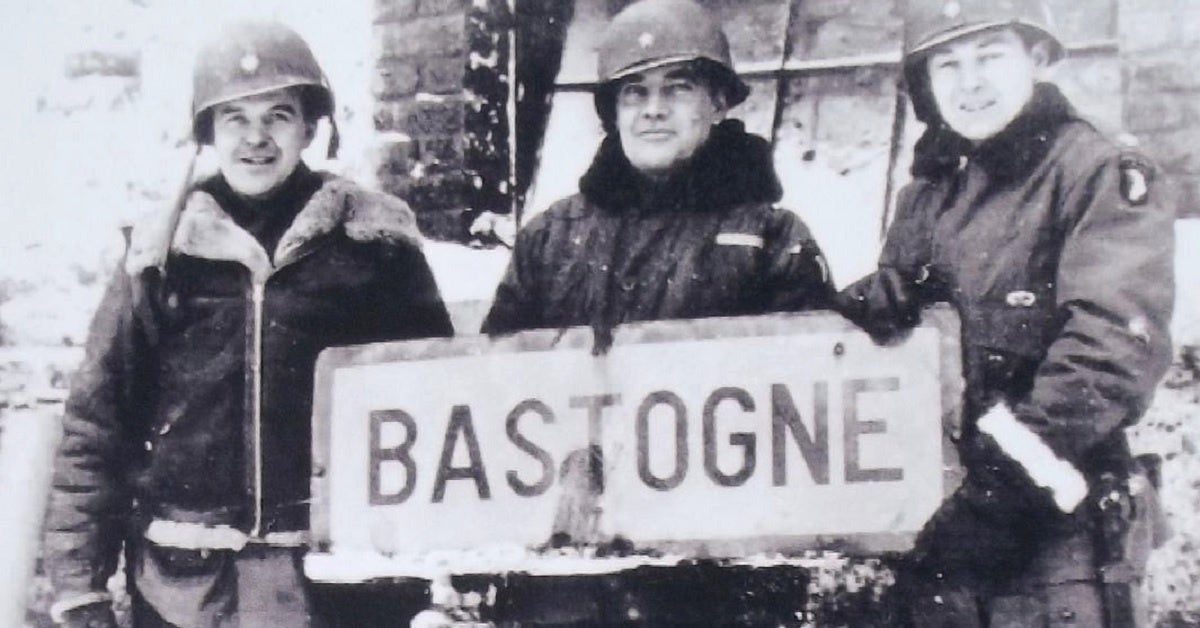
Bastogne, Belgium. 1944. Walk with us this morning.
We're on the lines with the 101st Airborne. Encircled and outgunned, holding Bastogne. Numb hands and feet, freezing in the dirty snow.
The Germans expect surrender.
They expect wrong.
#battleofthebulge
We're on the lines with the 101st Airborne. Encircled and outgunned, holding Bastogne. Numb hands and feet, freezing in the dirty snow.
The Germans expect surrender.
They expect wrong.
#battleofthebulge
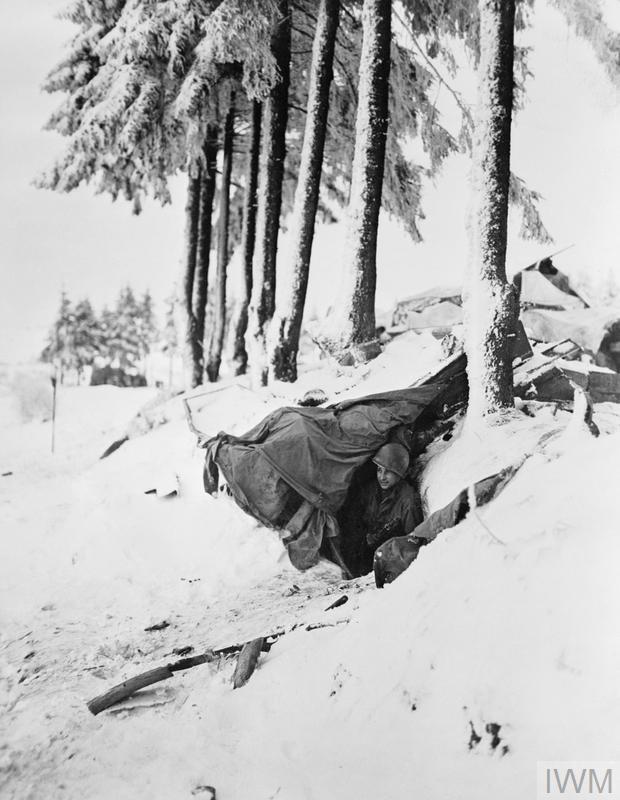
We're at Pvt. 1st Class Leo Palma's foxhole when the Germans arrive. He describes them as warm, bundled up in overcoats. Leather boots shined and oiled. A world apart from him.
They're waving white flags. They want to talk.
They're waving white flags. They want to talk.
They pull out blindfolds and let themselves be blindfolded. They let themselves be led through the lines - roundabout, so they can't case the defenses - to deliver a note they'd brought.
The note demands surrender. It gives the Americans two hours to think it over. It not-so-subtly threatens mass civilian casualties, in addition to American casualties, if the demand is refused. 
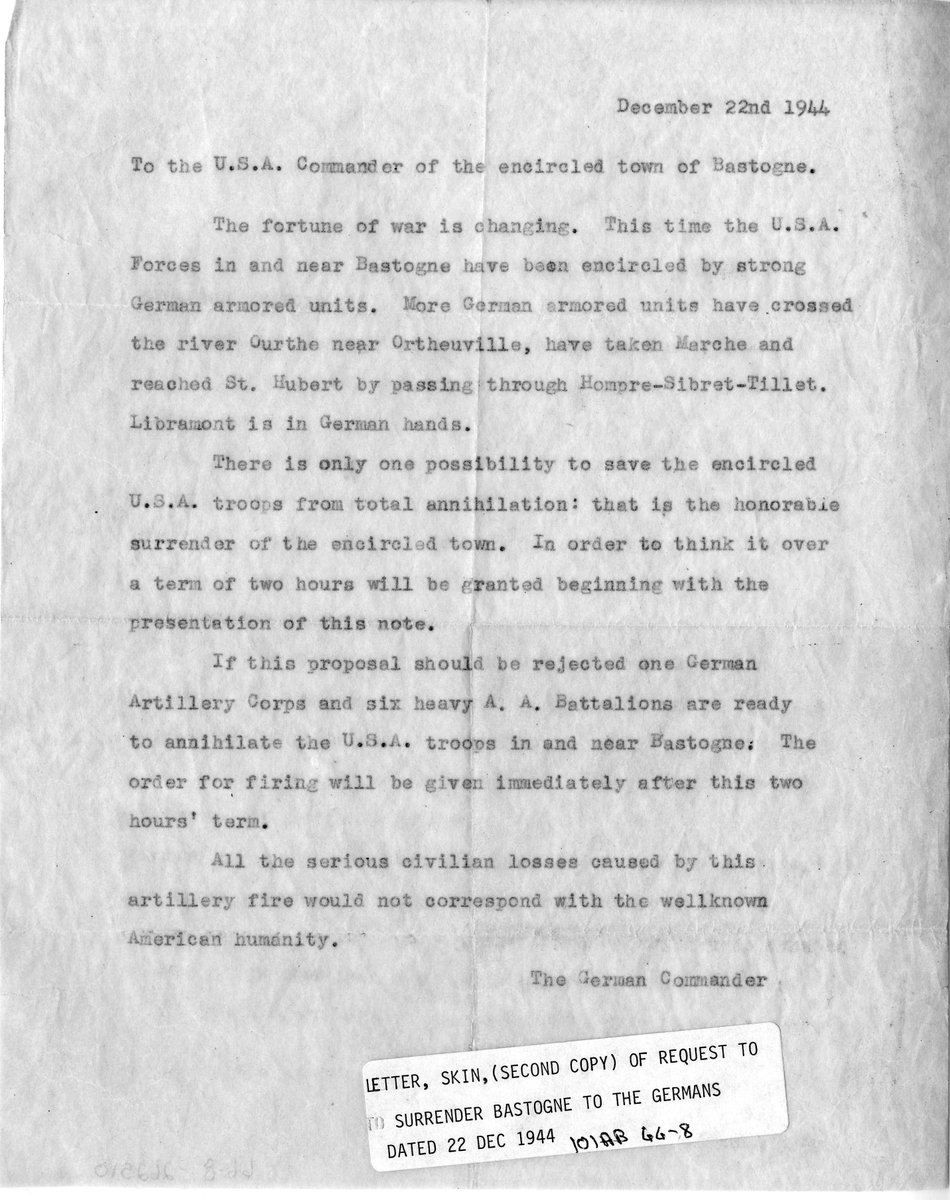
The note reaches Brig. Gen. Anthony McAuliffe, acting commanding general of the 101st.
At first, he's confused. He thinks they're offering to surrender to the Americans.
When he realizes what they're actually offering, he gets angry.
At first, he's confused. He thinks they're offering to surrender to the Americans.
When he realizes what they're actually offering, he gets angry.
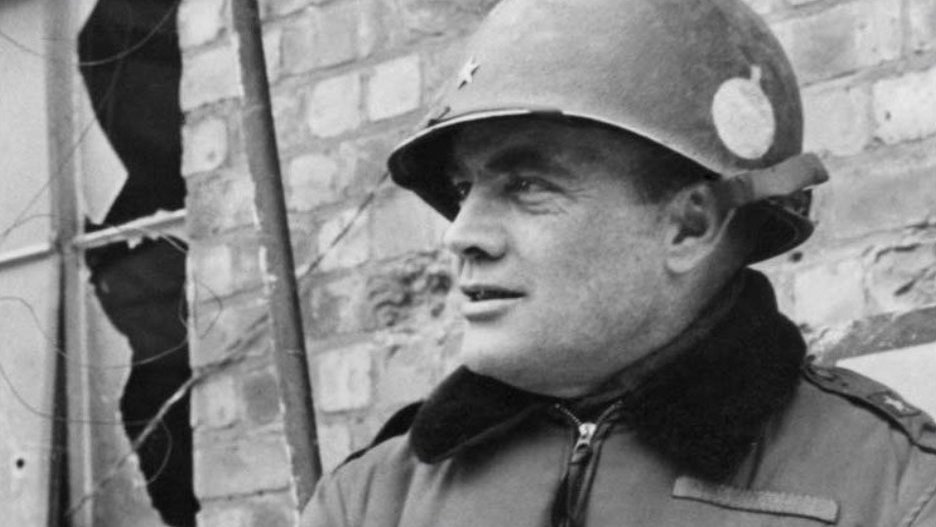
McAuliffe has his staff type it up formally. He has it delivered to the Germans.
December 22, 1944
To the German Commander,
N U T S !
The American Commander
December 22, 1944
To the German Commander,
N U T S !
The American Commander
It meant the same thing as, "you can go to hell," in the jargon of the day.
The Germans miss that part of the American slang, so Pvt. 1st Class Ernest Premetz helps translate when he hands off the note: "Du kannst zum Teufel gehen."
The Germans miss that part of the American slang, so Pvt. 1st Class Ernest Premetz helps translate when he hands off the note: "Du kannst zum Teufel gehen."
(Honorable mention to Col. Bud Harper, who was also there, and initially suggested Premetz tell them "to take a flying sh*t.")
The Germans storm off after threatening to attack.
Harper bids them farewell with "good luck."
Harper bids them farewell with "good luck."
It's quiet again. It's still cold.
The demand has been issued and refused. The Americans brace themselves for a ferocious artillery and tank onslaught.
It never comes.
The demand has been issued and refused. The Americans brace themselves for a ferocious artillery and tank onslaught.
It never comes.
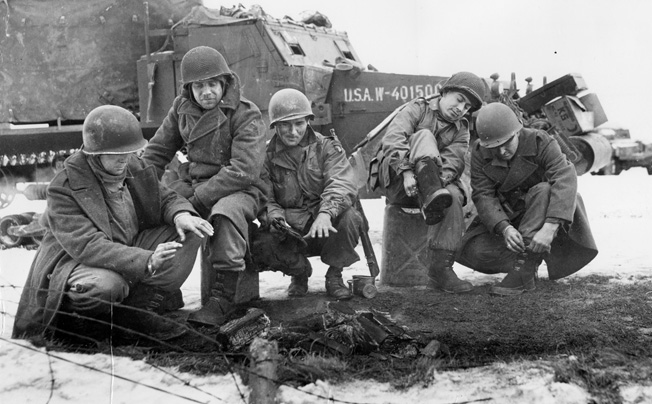
The Germans, after internal disagreement and discussion, bypass Bastogne. They leave it for follow-on units.
The 101st fights on, into its place in history. Its rendezvous with destiny.
The 101st fights on, into its place in history. Its rendezvous with destiny.
This is a high water mark. This is what it meant to be Americans. What it meant to be Allies in this fight.
Staring down insurmountable odds, they stood in the face of the enemy.
They told them to go to hell. And they won.
Staring down insurmountable odds, they stood in the face of the enemy.
They told them to go to hell. And they won.
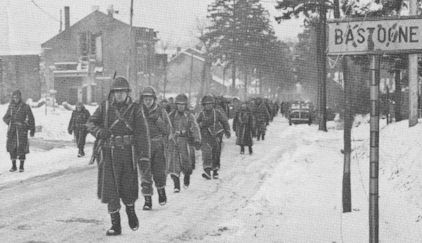
• • •
Missing some Tweet in this thread? You can try to
force a refresh
